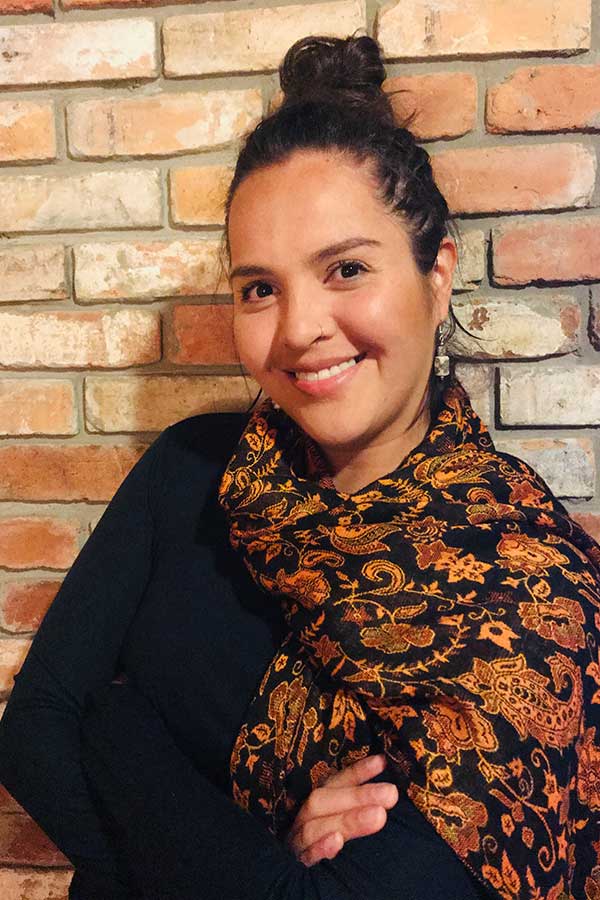Falk College strives to achieve excellence in education not only through good teaching but also through participation in active research. Our students benefit by learning from researchers who are working at the cutting-edge of knowledge, within well-equipped laboratories, and in projects that are both domestic and abroad. We encourage both undergraduates and graduate engagement to achieve not only a rewarding educational experience but also enhanced career opportunities upon graduation. Learn more about the different types of research awards.

Extramural AwardCoast to Cow to Consumer
Optimizing agricultural productivity to sustainably meet rising global food demands requires innovative agricultural methods. Up to 12% of dietary gross energy may be lost through enteric methane (CH4) production, limiting cattle performance. . .
Learn more about this research.

Extramural AwardFeeding Seaweed to Advance the Sustainability of Organic Dairy and Aquaculture Systems
Organic dairy is faced with oversupply and fluctuating prices that threaten long-term financial viability. Identifying and adopting management strategies that improve production efficiency are critical to the industry.
Learn more about this research.

Extramural AwardRoot Causes of Bias-based Harassment in Schools: Risk and Protective Factors across Multiple Levels of the Social Ecology
Hate directed at youth with marginalized identities has increased in recent years, and there is a dearth of research that focuses on social-ecological factors associated with bias-based victimization and perpetration. . .
Learn more about this research.

Extramural AwardELC Wastewater Surveillance
The New York State Department of Health has contracted Syracuse University to scale a wastewater surveillance network for SARS-CoV-2 and other public health threats. . .
Learn more about this research.

Extramural AwardNYS Wastewater Surveillance Network
New York State Wastewater Surveillance Network – Phase 2. The New York State Department of Health has contracted Syracuse University to build the data and technical infrastructure for a statewide wastewater surveillance network. . .
Learn more about this research.

Extramural AwardIntergenerational Solidarity with Digital Communication among Korean Adult Children and Older Parents
Using a dyad-centered approach, the proposed research aims to (1) uncover dyadic profiles of intergenerational solidarity with digital communication in Korean older parent-adult child pairs; and (2) examine how these dyadic profiles are associated with mental health within generational pairs. . .
Learn more about this research.

Extramural AwardREU: Training Diverse Undergraduate Teams of Veterans and Non-Veterans to Conduct Trauma Research with Veterans, NSF
Kenneth James Marfilius | Bryce Hruska | Brooks B. Gump | Katherine McDonald | Tracey Musarra Marchese |Undergraduate Trauma Research Training, a National Education for Undergraduates (REU) program, is a National Science Foundation-funded joint effort between Syracuse University, SUNY Oswego, and SUNY Upstate Medical University. The objective is to train student veterans and non-veterans to conduct trauma-related research with veteran participants. . .
Learn more about this research.

Extramural AwardSyracuse Urban Food Forest Project (SUFFP)
The Syracuse Urban Food Forest Project (SUFFP) began in 2019 as a Syracuse University-SUNY Environmental Science & Forestry (ESF) collaboration, weaving together ecological sciences, landscape design, and urban food policy into an innovative approach to assess potential urban food forest potential as connective ecological-social infrastructure. . .
Learn more about this research.

Extramural AwardIncluding Adults with Intellectual Disability in Precision Medicine Research – Project ENGAGE
Adults with intellectual disability experience significant health disparities and may benefit from precision medicine research advances. However, they are underrepresented in research and understanding of solutions to the ethical, legal, and social consent-related challenges that present barriers to their inclusion in this research is limited. . .
Learn more about this research.

2022-2023 SU CUSE GrantEMS Worker Navigation Study – Phase 2: Preliminary Test of a Resilience Building Intervention & the Role of Psychosocial Safety Climate on Mental Health – Resubmission
Emergency medical service (EMS) workers (i.e., ambulance service providers) experience triple the risk for anxiety, depression, and posttraumatic stress disorder (PTSD) compared to the general U.S. population. These mental disorders impact health and well-being across the life course.
Learn more about this research.

2022-2023 Falk Tenure-Track Assistant Professor Seed Grant AwardRole of Fish oil in Reducing Risks of Paternal Obesity and thereby Improving Offspring Metabolic Health
Paternal obesity impacts early-life nutrition and offspring health yet is infrequently considered as a priority contributing factor to child health.
Learn more about this research.

2022-2023 Falk Tenure-Track Assistant Professor Seed Grant AwardLongitudinal Patterns of Adverse Childhood Experiences and Adolescent Sexual and Reproductive Health
Adverse childhood experiences (ACES) are associated with early onset of sexual intercourse, having more sexual partners, and contracting HIV, making them an important public health concern
Learn more about this research.

2022-2023 Falk Tenure-Track Assistant Professor Seed Grant AwardPsychological and Biological Effects on Child Development
Psychological and biological stressors such as poverty, parental mental illness, and environmental toxicants influence child health and development.
Learn more about this research.

2022-2023 Falk Tenure-Track Assistant Professor Seed Grant AwardLocal Agroecological Knowledge and Farmers’ Responses to Global Environmental Change in Small-scale Urban Farms and Community Gardens of Central New York
Efforts to conserve biodiversity, adapt to climate change, and address food sovereignty are critical for the survival of small farms in rural and urban areas of Central New York. This research focuses on the challenges of rural and urban small-scale farmers and community gardeners in the face of global environmental change, and their adaptation strategies.
Learn more about this research.

2022-2023 Falk Tenure-Track Assistant Professor Seed Grant AwardContext Matters: How Do Neighborhood Structural Factors Affect Parenting Stress among Asian Immigrant Families?
Fei Pei |This study focuses on the connections of neighborhood structures, cultural orientation, and social support to parenting stress among Asian immigrant families. Parenting stress is prevalent and persistently high levels of parenting stress has individual, familial, and societal consequences such as increased risk of poor maternal mental health, child maltreatment, and traumatized child development.
Learn more about this research.

Extramural AwardResearch Ethics for All: Accessible Research Ethics Education for Community Research Partners
As part of a broader disability rights movement, adults with developmental disabilities are increasingly influencing scientific research. In these roles, adults with developmental disabilities help decide what to study, how to study it, what it all means, and what to do with the new information….
Learn more about this research.

Extramural AwardDevelopment and Evaluation of Community-based Approaches and Donor Care Intervention Models for Improving Availability and Safety of Blood for the Management of Severe Anemia in Ghana
This NHLBI-funded study aims to design, implement and evaluate community-based strategies for increasing the blood-donor pool in Ghana. It is one of three consortia funded under the NHLBI’s BLOODSAFE program to improve the availability and safety of blood in Sub-Saharan Africa.
Learn more about this research.

2021-2022 SU CUSE GrantMaternal Fish Oil Supplementation on Skeletal Muscle and Pancreas Function of Offspring
Obesity is a growing epidemic afflicting more than 42% of adults and 20% of the children and adolescents in the United States. Even more critical is that 60% of women are either obese or overweight at the time of conception]. Specifically, maternal programming through dietary intervention plays a key role in the prevention of childhood obesity and associated co-morbidities. Preventing obesity is vital as people suffering from obesity have three times higher risk of developing diabesity (obesity dependent T2D). Bioactives such as fish oil (FO) offer health benefits in terms of lowering risk of T2D and heart diseases.
Learn more about this research.

2021-2022 SU CUSE GrantA Comprehensive Assessment of Cardiovascular Disease Risk in Resettled Refugees
Cardiovascular disease (CVD) is disproportionately higher among low socioeconomic status communities. It is significantly associated with adverse psychosocial factors, rendering it a particularly salient health outcome in refugees who have been exposed to stressful and life-threatening events pre-resettlement and may experience barriers to assimilating to an unfamiliar host country post resettlement. Currently there is limited information about CVD risk among refugees as they settle in the United States. The objectives of the proposed project are therefore to thoroughly assess CVD risk in refugees resettled in Syracuse, New York, who are active patients of the ambulatory adult clinic at SUNY Medical Center.
Learn more about this research.

2021-2022 SU CUSE GrantA Randomized Controlled Trial of a Sleep Intervention for Obesogenic Eating Patterns
Over two-thirds of adolescents are sleep deprived, and pediatric obesity rates continue to surge. Meta-analytic reviews reveal a connection between poor sleep and obesity, but the mechanisms of this relationship are poorly understood. Eating to regulate emotions may contribute to the relationship between poor sleep and obesity, but there is a need for experimental research using high quality measurement. The primary goal of the proposed project is to collect preliminary data examining the application of a sleep intervention on emotional eating in adolescents, in preparation for external funding proposals to support larger-scale studies in this area.
Learn more about this research.

2021-2022 SU CUSE GrantVitamin D Supplementation in a Model of Rett Syndrome to Improve Breathing Outcomes
Rett syndrome (RTT) is a developmental disorder caused by mutations to the MECP2 gene. The Mecp2-mutant mouse is an important model to investigate RTT. Improvement of breathing deficits in this model are considered a primary goal in the development and application of new therapies. Since Vitamin D improves cortical neuron morphology through the NF-κB pathway, and previous work identified NF-κB signaling changes in the brainstem, it is highly plausible that brainstem and spinal cord neurons are also improved with Vitamin D supplementation, which would influence the pattern of breathing in Mecp2-mutant mice. This proposal focuses on the first key breathing experiment that is essential to provide proof-of-concept for this novel project by forming the collaboration between a cardiorespiratory physiology laboratory (L. DeRuisseau) and a developmental neurobiology laboratory (J. MacDonald).
Learn more about this research.

2021-2022 SU CUSE GrantThe Association of the EGLN1 Gene with the High Aerobic Capacity (VO2max) of Nepali Sherpa at High-altitude
There is compelling evidence that highland-native populations in the Himalayas (Sherpa,Tibetans) and the South American Andes (Quechua) are genetically adapted to chronic hypobaric hypoxia. For example, both population groups are tolerant to extreme high-altitude and show impressive physical work capacity in hypoxia. In Peruvian Quechua, we have identified several high frequency genetic markers that are associated with a significantly higher aerobic capacity (VO2max) at high-altitude. These markers were found in a gene known as EGLN1 which is a central component of the Hypoxia Inducible Factor (HIF) pathway. The HIF-pathway regulates the cellular response to hypoxia. In this CUSE grant, we will seek to replicate our Peruvian findings by collecting DNA and measuring VO2max in n=70 Sherpa highlanders at 4,240 m altitude in Nepal.
Learn more about this research.

2021-2022 SU CUSE GrantCultivating Self-regulation and Healthy Food Intake: A Novel Mindful Eating Intervention for Children and Their Caregivers
Early self-regulatory skills, including self-regulation around food and appetite, serve as the foundation for children’s behavioral competence, and thus represent an important target of intervention for behavioral health. One intervention strategy that is particularly promising for promoting self-regulation among young children is mindfulness. The primary aim of this study is to develop a family- and caregiver-based mindfulness and mindful eating curriculum that can be used in a future intervention targeted toward preschool age children and their caregivers that focuses on enhancing general self-regulation and appetite self-regulation.
Learn more about this research.

2021-2022 SU CUSE GrantObjectively Determined Sleep Estimates of the US Population
This project will utilize the wrist-worn accelerometer data from 2 cycles (2011-12, 2013-14) of the National Health and Nutrition Examination Survey (NHANES) that was recently released (Feb 2021). We have 3 main objects: (1) Refine an automated algorithm to process NHANES data to obtain sleep estimates as well as more granular information like sleep efficiency, wake after sleep, and other sleep variables to determine sleep architecture; (2)Complete exploratory analysis investigating the relationship between sleep measures to several behaviors and health outcomes, and; (3) Use results from exploratory analysis to apply for NIH funding.
Learn more about this research.

2021-2022 SU CUSE GrantExploring Music Interventions and Mechanisms for Addressing Alcohol Use Disorder
College drinking remains a serious public health concern, with college students more likely to drink frequently, drink heavily, and meet criteria for an alcohol use disorder than their non-college peers. Around 9% of full-time, US college students ages 18 to 22 suffer from alcohol use disorder (AUD), which is defined as an impaired ability to stop or limit alcohol use despite adverse consequences. Risky college drinking is associated with substantial negative consequences, including academic and cognitive impairment, assault, injury, and death. Thus, interventions are needed to address risky college drinking.
Learn more about this research.
